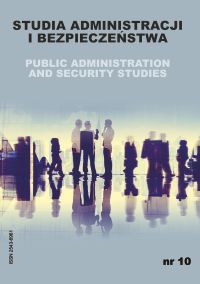Language education in the security system of the Republic of Poland
Language education in the security system of the Republic of Poland
Author(s): Bogusław Jagusiak, Agata Jagiello-TonderaSubject(s): Politics / Political Sciences, Social Sciences, Law, Constitution, Jurisprudence
Published by: Akademia im. Jakuba z Paradyża
Keywords: Military English; lingua franca; security; NATO, STANAG 6001
Summary/Abstract: : The English language has become the lingua franca of the contemporary world; a global language. The process of globalisation has also influenced the increasing demand for learning English. The demand involves not only general language but also language for specific purposes, including language of the military environment, Military English. English has also become the language of interoperability in NATO. The North Atlantic Alliance has always paid particular attention to the knowledge of foreign languages, which was expressed, among others, by the establishment of the BILC International Language Coordination Office and the development of language standards applicable to all Member States, STANAG 6001. Language education in the armed forces in Poland follows the Alliance’s guidelines. The correct use of military language and its understanding creates a successful administrative and operational military environment. On account of appropriate application of terminology, potential misunderstandings or misinterpretations of military activities can be avoided. Language education is one of the elements of language policy in the field of security.
Journal: Studia Administracji i Bezpieczeństwa
- Issue Year: 1/2021
- Issue No: 10
- Page Range: 148-168
- Page Count: 21
- Language: English

